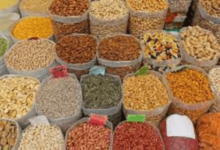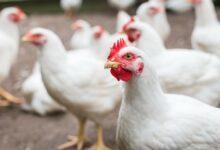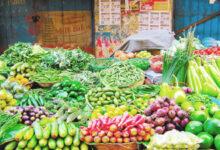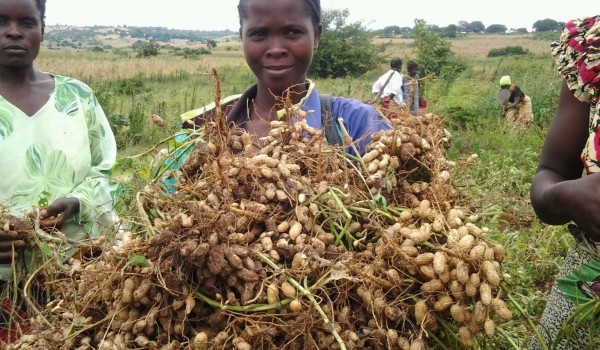
15 Best Selling Agricultural Products in Nigeria
Nigeria, known as the “Giant of Africa,” is blessed with vast agricultural resources and a favorable climate that supports the cultivation of various crops and the rearing of livestock. Agriculture plays a significant role in the Nigerian economy, providing employment opportunities for millions of people and contributing to the country’s GDP. In this article, we will explore the 15 best-selling agricultural products in Nigeria, highlighting their importance and economic impact.InformationGuideNigeria
Read Also: 10 Environmental Factors Affecting Agricultural Production In Nigeria
👉 Relocate to Canada Today!
Live, Study and Work in Canada. No Payment is Required! Hurry Now click here to Apply >> Immigrate to Canada15 Best Selling Agricultural Products in Nigeria
1. Cassava:
Cassava is a staple crop in Nigeria and one of the most widely cultivated agricultural products. It serves as a vital source of carbohydrates and is used in various forms, including food processing, livestock feed, and industrial applications like starch and ethanol production.15 Best Selling Agricultural Products in Nigeria
2. Rice:
Rice is a dietary staple and a highly demanded agricultural product in Nigeria. With a growing population and increasing urbanization, the demand for rice has surged, leading to the country’s dependence on imports. However, efforts are being made to boost local rice production to meet the demand and reduce reliance on imports.NYSC Portal
3. Maize (Corn):
Maize is a versatile crop widely consumed as food and feed in Nigeria. It serves as a primary ingredient in various food products, including pap, snacks, and animal feed. Maize cultivation contributes significantly to food security and the livelihoods of many farmers.
Read Also: 10 Importance Of Agricultural Marketing In Nigeria
4. Yam:
Yam holds cultural significance in Nigeria and is a major agricultural product. It is consumed in various forms, such as boiled, roasted, pounded, or processed into flour for making yam-based products. Nigeria is the largest producer of yam globally, making it a highly sought-after commodity.JAMB Portal
5. Palm Oil:
Palm oil is a widely used cooking oil and an essential ingredient in the Nigerian diet. It is also a key raw material for the production of soap, margarine, and other household and industrial products. Nigeria ranks among the world’s largest producers of palm oil.
6. Poultry:
Poultry farming, including chicken, turkey, and duck, is a lucrative agricultural venture in Nigeria. Poultry products such as eggs and meat are in high demand, both locally and internationally, making the poultry industry a significant contributor to the country’s agricultural sector.
Read Also: 10 Factors Affecting Agricultural Extension Services In Nigeria
👉 Relocate to Canada Today!
Live, Study and Work in Canada. No Payment is Required! Hurry Now click here to Apply >> Immigrate to Canada7. Fish:
Nigeria has a vast coastline and numerous freshwater bodies, making fishing a major agricultural activity. Fish provides a vital source of protein and essential nutrients for the Nigerian population. The demand for fish, both fresh and processed, remains consistently high, driving the growth of the fisheries sector.
8. Cocoa:
Cocoa is an important cash crop and a key agricultural export for Nigeria. The country has favorable climatic conditions for cocoa cultivation, making it one of the world’s largest producers. Cocoa beans are used in the production of chocolate, cocoa butter, and other confectionery products.15 Best Orthopedic Mattress In Nigeria
9. Rubber:
Rubber is a valuable agricultural product in Nigeria, primarily grown in the southern part of the country. The latex extracted from rubber trees is used in the production of tires, rubber products, and adhesives. Nigeria’s rubber industry contributes to both domestic consumption and export earnings.
10. Groundnut (Peanut):
Groundnut is a significant oilseed crop in Nigeria, providing oil for cooking and other purposes. Groundnut farming is prevalent in the northern part of the country. Groundnut oil is widely used in Nigerian cuisine, and the crop also serves as a vital source of protein and income for farmers.200 Romantic Love Message
11. Palm Kernel:
Palm kernel is the seed of the oil palm fruit and is an important agricultural product in Nigeria. It is used in the production of palm kernel oil, which finds applications in food processing, soap making, and cosmetics. The palm kernel industry complements the palm oil industry, contributing to Nigeria’s agricultural exports.
Read Also: Environmental Factors Affecting Agricultural Production in Nigeria
12. Sorghum:
Sorghum is a drought-tolerant crop that thrives in Nigeria’s arid and semi-arid regions. It serves as a vital source of food and feed, commonly used in the production of traditional beverages like kunu and burukutu. Sorghum also has industrial applications, including the production of biofuels and animal feed.
13. Cowpea:
Cowpea, also known as black-eyed pea, is a popular legume in Nigeria. It is rich in protein and essential nutrients, making it an important dietary component. Cowpea is consumed as a staple food and also used in the preparation of various dishes, such as moi moi and akara (bean cakes).105 Good Morning Love Messages
14. Rubberwood:
Rubberwood, derived from rubber trees after latex extraction, is an emerging agricultural product in Nigeria. It is used in the manufacturing of furniture, flooring, and other wood-based products. The utilization of rubberwood provides an additional revenue stream for rubber farmers.
15. Sesame Seeds:
Sesame seeds are oil-rich seeds cultivated in Nigeria for both domestic consumption and export. The seeds are used in cooking, bakery products, and the production of sesame oil. Nigeria is one of the leading producers of sesame seeds globally, with increasing demand in international markets.
Read Also: 10 Factors Affecting Agricultural Mechanization in Nigeria.
Conclusion:
The agricultural sector in Nigeria offers immense potential and plays a crucial role in the country’s economic development. The 15 best-selling agricultural products mentioned above contribute significantly to food security, employment generation, and export earnings.
By investing in modern farming techniques, infrastructure development, and research and development, Nigeria can further enhance the productivity and competitiveness of its agricultural sector, benefiting both farmers and the overall economy. It is essential for the government, private sector, and stakeholders to collaborate and provide support to promote sustainable agriculture and ensure the continued success of these best-selling agricultural products in Nigeria.
Check JAMB Result
Check and Confirm: How much is Dollar to Naira
